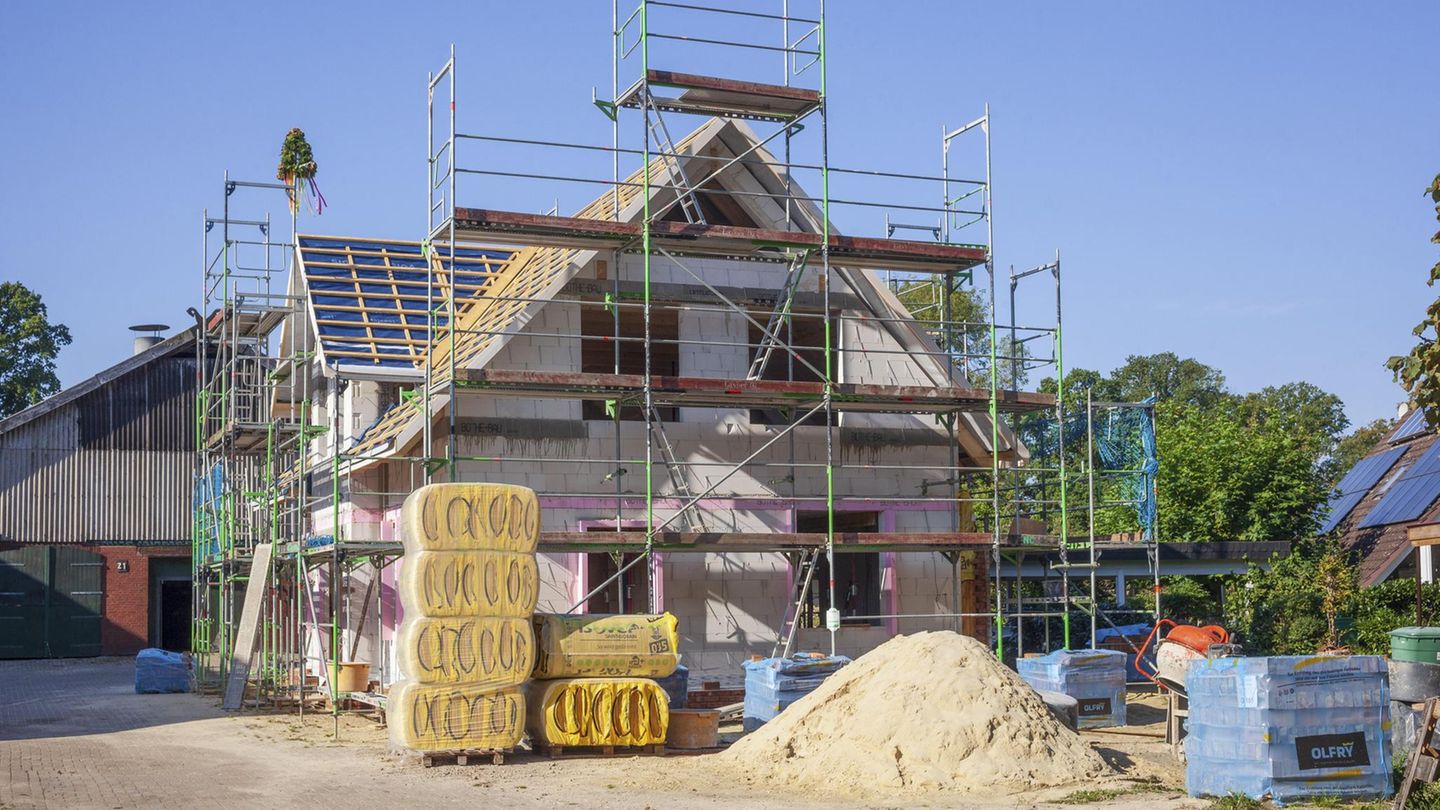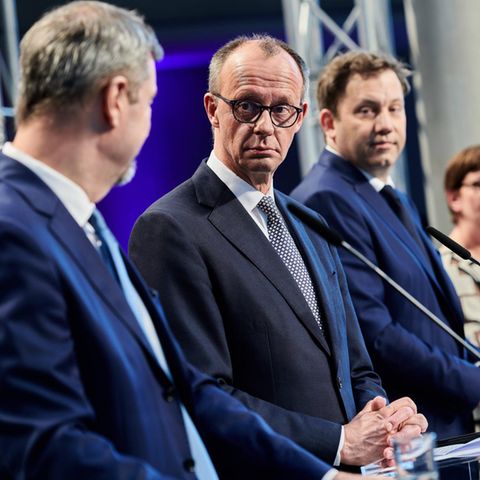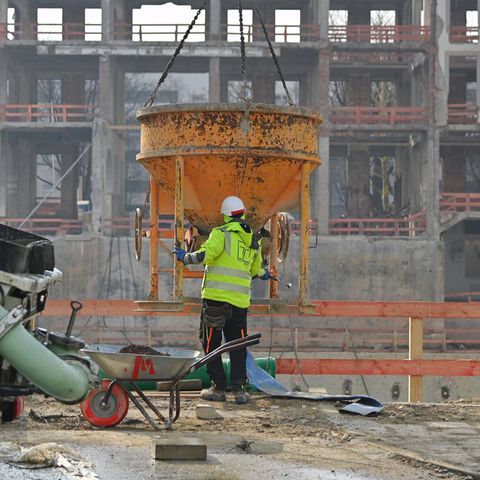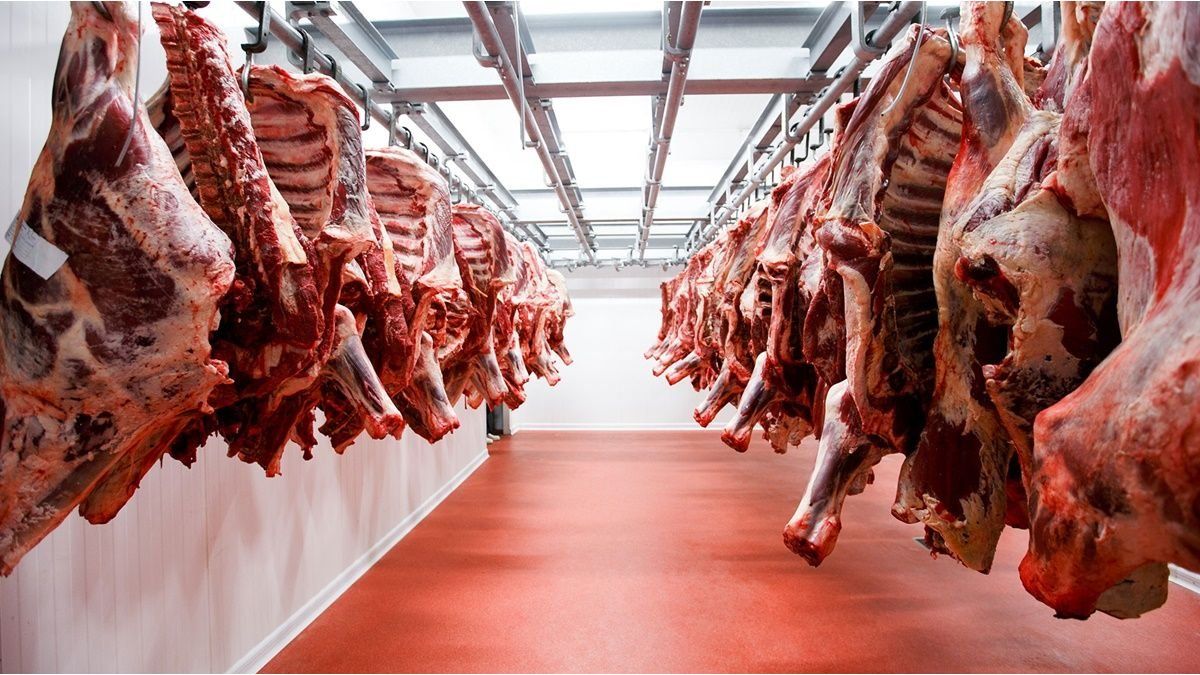Coalition agreement
Will build and live now really cheaper?
Copy the current link
Add to the memorial list
The black and red coalition agreement deals with the living issue on around four pages. In short: everything should be easier. Here are the most important changes planned.
Construction plans are not exactly a specialty of German federal governments. In the past decades, almost all goals set in Berlin have been missed. The traffic light coalition wanted to create 400,000 new apartments a year-not 300,000.
According to the Federal Institute for Building, Urban and Spatial Research (BBSR), 320,000 apartments would have to be added annually to cover the need, especially in Berlin, Hamburg, Munich, Cologne, Frankfurt am Main, Stuttgart and Düsseldorf. Different in the country: A good two million apartments are empty.
Here is the essential changes that a Merz government under the maxim “affordable, available and environmentally friendly” wants to enforce when building and living:
Rental price brake extended by four years
High rents are a real dilemma in a country where almost half of the residents live for rent. That is why Schwarz-Rot wants to extend the rental price brake, which would expire by four years at the end of 2025; About 30 percent of all tenants live in regions with rental price brakes. The new government wants to intervene in index rents (rents that increase automatically), and furnished rooms that are increasingly offered in large cities, probably to avoid the rental price brake.
Landlords should receive incentives to modernize their ownership, and those who rent cheaply should receive tax benefits. Tenants should be relieved of the modernization levy. Details are not yet known. By the end of 2026, an “expert group” is to be set up, which elaborates further regulations, including a catalog of fines for violations of the rental price brake. A “rent report” should bring light into the opaque market.
Building turbo should use immediately
Black-red cannot be involved in number promises such as “400,000 per year”, only writes: “We crank up housing and ownership formation through an investment, tax reduction and de-bureaucratization offensive.” The planning, construction, awarding and procedural law should be cleared out-also an ancient claim. The aim is that in tense housing markets in large number of apartments for a cold rent of 15 euros per square meter are created. Social housing is an essential part of the living space supply.
Building should be easier above all. The building code wants to revise black and red in two steps. In the first 100 days after taking office, the coalition plans to switch on a “housing construction turbo” by law. Later there should be a “basic reform” to accelerate building. A reduction in the building standards is said to work against the exuberant bureaucracy. The “building type E” (“e” as simple) is allowed and supported. With less strict DIN specifications, cheap, functional buildings should be implemented quickly. The idea comes from the traffic light time.
More help for families and young people
In order to help the German property, there should be tax relief in the new building or living space renovation (“Start -up aid residential property”). For this purpose, the state KfW sets up two central funding programs.
The old building energy network (opposite) is to be replaced. It was mockingly “heating law” under the traffic light because it stipulates in paragraph 71 that at least 65 percent of heating heat must come from renewable energies in the future. Now the achievable CO2 avoidance should become a central control variable. You could also reach CO2 savings goals together in the “Quartier”. However, the renovation and heating promotion should continue. Everything is still spongy, but certainly no return to gas heating. The designated Chancellor Friedrich Merz speculated that the citizens would switch to more environmentally friendly heating and install a heat pump, for example, because of increasing gas and oil prices.
WG subsidy for studies and trainees
The Jusos postulated in the election campaign that no shared apartment can cost more than 400 euros. The coalition agreement now laid down a kind of “flat share guarantee” for students and trainees. In addition to the additional investments in young living, the funding provisions for the occupancy purchase of living space will be opened for trainees and students “. Many experts do not consider a “flat share” to be implemented.
Not all happy with a coalition agreement
Not everyone involved is happy with the coalition program. The owner association Haus & Grund sees a step backwards, especially because the rental price brake (“ineffective or counterproductive”) is preserved. Representatives of small cities and municipalities criticize that it was particularly written for metropolitan areas that the country is hardly taken into account. Independent construction experts usually welcome the intentions of black and red-if they become reality.
Source: Stern
I have been working in the news industry for over 6 years, first as a reporter and now as an editor. I have covered politics extensively, and my work has appeared in major newspapers and online news outlets around the world. In addition to my writing, I also contribute regularly to 24 Hours World.






